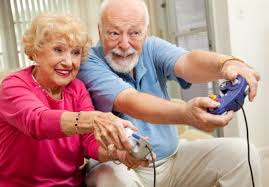 Memory decline doesn’t have to be part of a person’s aging process. You may know that I have written a book on dementia, but memory decline does not have to be everyone’s story. It’s almost a given that when families approach me for help with a loved one, they make reference to their loved one’s memory that is “not what it used to be.”
Memory decline doesn’t have to be part of a person’s aging process. You may know that I have written a book on dementia, but memory decline does not have to be everyone’s story. It’s almost a given that when families approach me for help with a loved one, they make reference to their loved one’s memory that is “not what it used to be.”
Dr. Richard Resnick, a neurologist at George Washington Hospital University School of Medicine and Health, tells us that memory decline is simply not inevitable. He talks about “working memory” that falls somewhere between what has “just happened” and what may have happened early in our life story. More importantly, Dr. Resnick talks like a physical trainer by offering mental exercises to sharpen our recall, because as with physical exercise, if you don’t use it, you will lose it. And as with physical exercise, mental exercise is a daily commitment.
Pay Attention. My husband walks our dog twice daily and jokes a bit about how he remembers the other dogs’ names, but sometimes he slips on the other dog walkers’ names. Well, if you’re paying attention to an adorable Aussie or poodle or whatever, it may be easier to slip on the “run of the mill” human being walking their four-legged beauty. The solution is to attach something more memorable to that person at the other end of the leash…a snappy hat, or what they’ve said about their work or their height. You’ll find unique hooks to help remember, but you have to pay attention.
Make It a List. We all make a list before heading to the grocery store, but instead of walking the aisles list in hand, simply walk the aisles picking up what you recall from your list and check back against your list when you think you’re ready to checkout. You may need to head back to aisle 7 for the olive oil, but you’re working your memory more than you pen or phone.
Play Games. There are a lot of games that require concentration and memory, and some even add a dose of creativity. My husband and I have a favorite called Bannagram. Think of the board game Scrabble without the number values on the tiles. Instead, you each start with 21 random tiles from which you will spell as many words vertically and horizontally as possible. There are additional guidelines on how to get through your tiles, replace and go again until the tiles are gone. The first one to use all their tiles when the common pile is gone is the winner. We are very competitive which perhaps makes the exercise work even better.
Challenge Yourself. If you enjoy reading, keep reading challenging novels. If you follow the news, do the NYTimes weekly quizzes. If you’re into tech, download apps that challenge you (I’m not talking Candy Crush here). You’ll find the right challenge for you or your older loved one, and you’ll age sharp!
Charlotte Bishop is an Aging Life Care Advisor, Geriatric Care Manager and founder of, certified professionals who are geriatric advocates, resources, counselors and friends to older adults and their families in metropolitan Chicago. She also is the co-author of How Do I Know You? A Caregiver’s Lifesaver for Dealing with Dementia.






